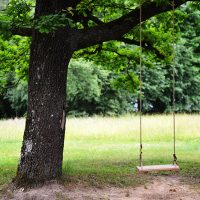Explaining Florida Premises Liability Law

The concept of premises liability is an old one, dating back to English common law. At its heart, premises liability is a theory that holds that a landowner (or business owner) is liable for the injuries sustained by visitors to their premises – but only to a certain point, and to varying degrees depending on the status of the visitor. While this sounds straightforward, it can become complex given how many variables can result. The right attorney can help.
Three Classes
In general, premises liability requires that a landowner keep their premises in ‘reasonably safe’ condition. In Florida law, ’reasonably safe’ may differ depending on the status of the visitor. Three classes of visitors are recognized: invitees, licensees, and trespassers. Invitees are on a person’s premises to conduct some kind of business with the owner – for example, a customer at a store qualifies. Licensees are present for their own business, such as a child entering another yard to take back a ball gone astray.
The duty a landowner owes each type of visitor is different in terms of making the property safe. A landowner need only refrain from visiting ‘wanton and willful harm’ onto a trespasser in order to meet their duty of care; however, if a landowner knows trespassers commonly show up on their property, they may have a duty to warn against dangers they cannot correct. This goes particularly for child trespassers; Florida has the “attractive nuisance” doctrine which imposes extra liability if a child trespasser is injured on another’s premises.
Different Levels Of Care Owed
By comparison to trespassers, a greater duty is owed to licensees and particularly to invitees. Because they are there with permission, the landowner has an explicit duty to warn them of any particular dangers on the property that they cannot fix. For invitees, however, a landowner must also affirmatively inspect the premises and correct any potential dangers that they can. A common example of a landowner-invitee relationship is the Disney Parks and their guests – the highest duty of care is owed.
If you have been injured on someone else’s premises and you are unsure as to what group you might fall into, an attorney may be able to help clear up the issue. In order to recover financially, you must be able to show that the landowner failed in their duty to exercise the appropriate level of care, and that your own actions did not play a role in more than 50 percent of your injuries – Florida law holds that if the injured plaintiff is found more than 50 percent at fault in a premises liability case, they cannot recover at all.
Contact A Maitland Premises Liability Attorney
A landowner has a duty to make their premises safe for others, and a failure to do so can be actionable. If you have been injured in someone else’s home or business, a Maitland premises liability attorney from the Hornsby Law Group can help you navigate the legal process. Call our office today to schedule a consultation.
Source:
casetext.com/case/crutchfield-v-a